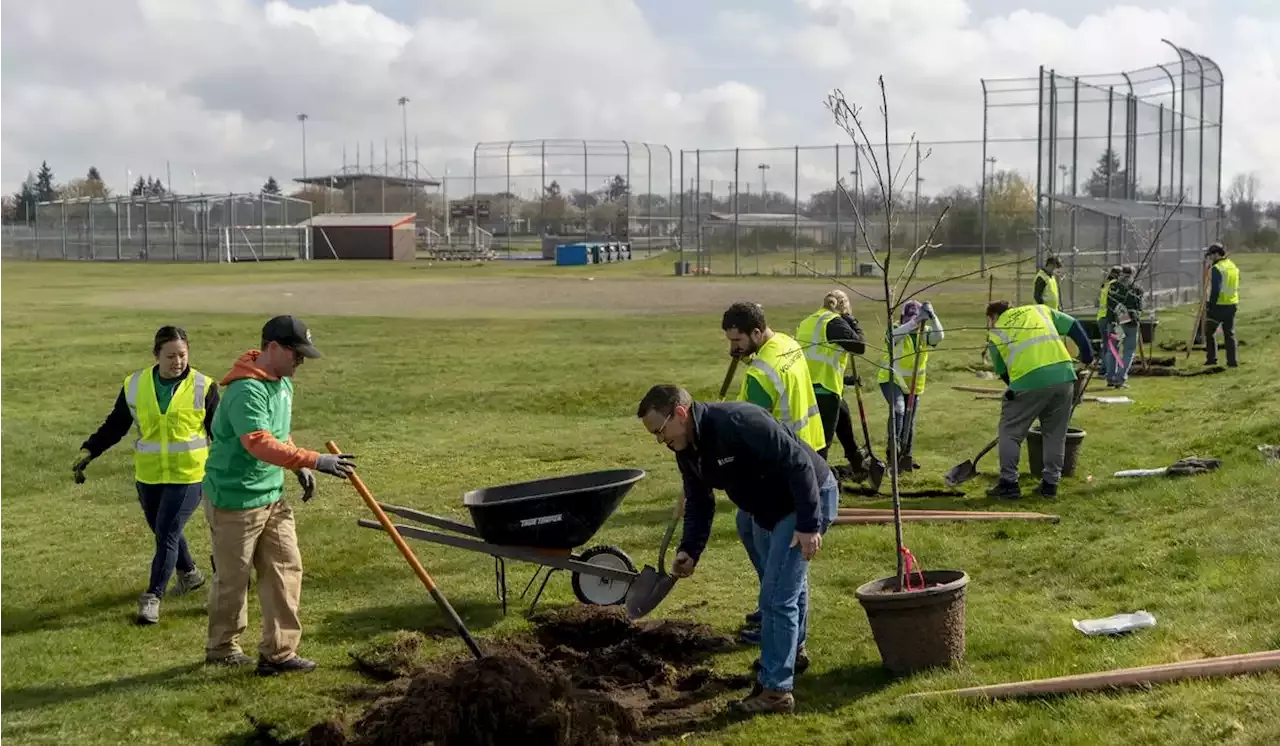“To me, 70 degrees is fair weather, but when you’re walking somewhere or you’re around a neighborhood that don’t have trees, it will feel like it’s like 87, 90 degrees. That’s what it feel like,” said Taylor. “You’re exposed to more sun than you are shade.”
“City trees are not just having a moment. In many ways, this is more than a moment in the sun. This is, I believe, the new normal,” said Dan Lambe, chief executive of the Arbor Day Foundation. Lambe said the massive federal investment recognizes trees are essential for communities, “not just a nice-to-have, they’re a must-have.”
Historically redlined cities like Hartford, where banks denied or avoided providing loans because of the racial makeup, are up to 13 degrees hotter than neighborhoods not redlined, said Lauren Marshall, senior manager for program innovation at the Arbor Day Foundation. With less access to nature, she said many residents in these communities didn’t have the option to escape the heat and socially distance outside during the pandemic to a cooler, shaded area.
Seattle also plans to require three trees be planted for every healthy site-appropriate tree removed from city property. The cost of Biden’s tree-planting program has received some political pushback from lawmakers who’ve likened it to pork-barrel spending.
